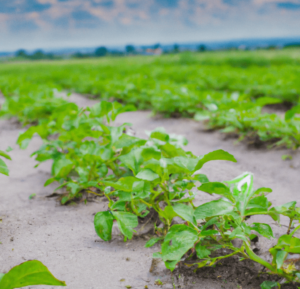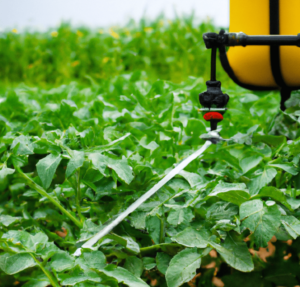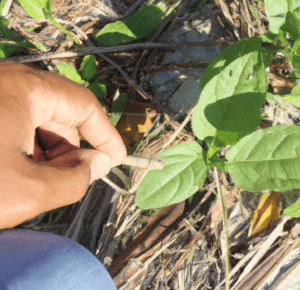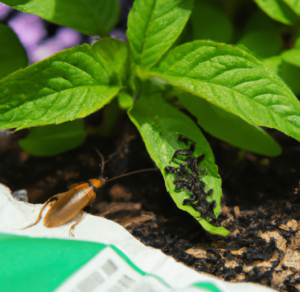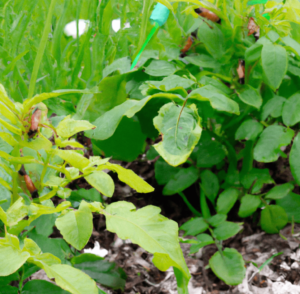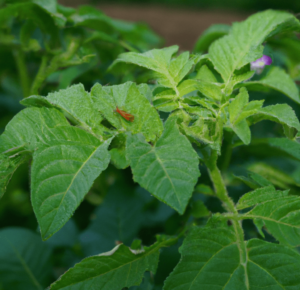In farming and gardening, fertilizers are essential because they promote the health and strength of crops. However, the risks that chemical fertilizers cause to our health and the environment are becoming increasingly obvious as their use spreads. Chemical fertilizers contain a variety of synthetic substances that may be hazardous to the soil, the crops they are used to fertilize, as well as to the people who eat the food that has been grown with them. We’ll discuss the dangers of using chemical fertilizers and how to avoid them here.
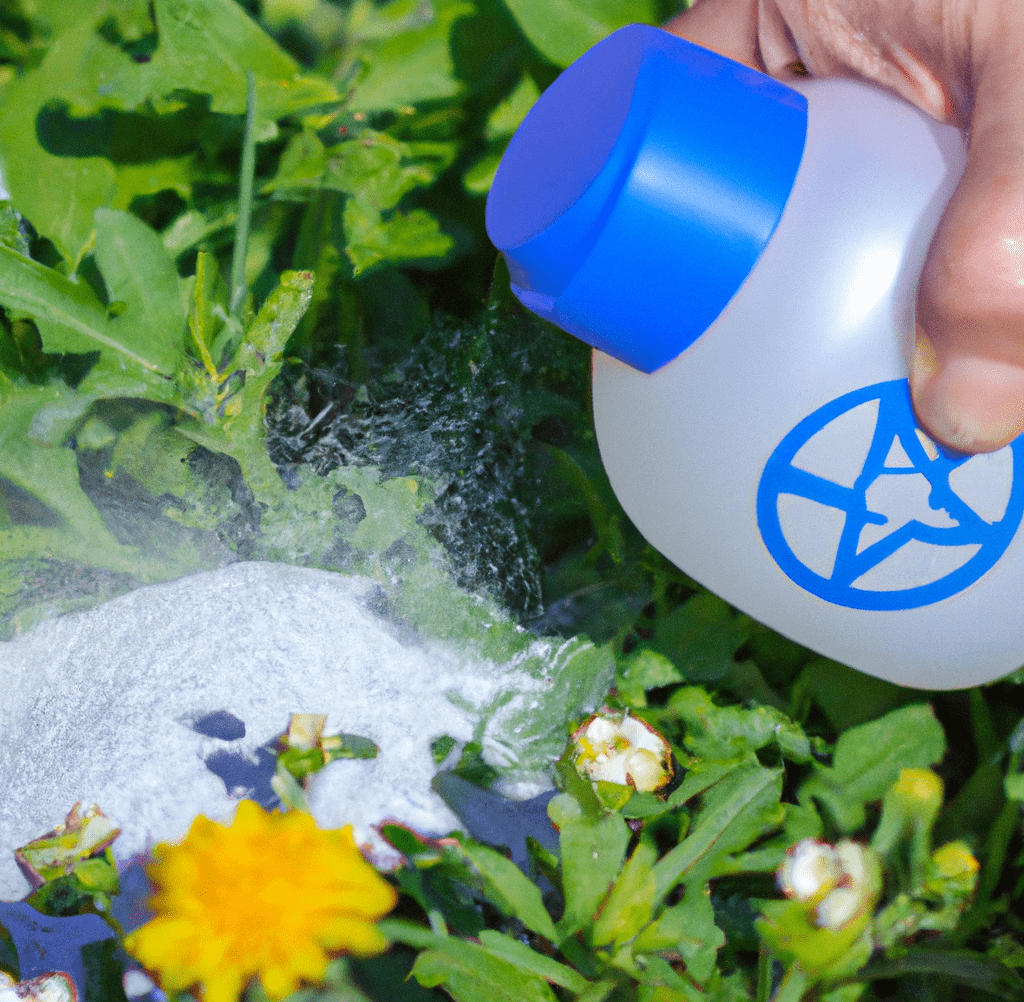
What are Chemical Fertilizers?
These chemicals are artificial substances created to supply the vital nutrients needed for plant growth. They’re frequently used in farming and gardening as a temporary fix to raise crop yields and guarantee strong plant growth. Due to their quick results and comparative affordability when compared to alternative fertilizing methods, the usage of chemical fertilizers has grown in popularity.
However, there are a number of disadvantages to using chemical fertilizers. These fertilizers’ synthetic components may be detrimental to the soil, causing long-term deterioration and a loss of fertility. Additionally, they may have harmful impacts on soil-grown plants, which may compromise the health of those plants and their capacity to yield nutritious food. Additionally, the usage of chemical fertilizers may cause the soil to become overly toxic, which could then be absorbed by crops and consumed by humans.
The Negative Impacts of Chemical Fertilizers
In modern agriculture, the role of fertilizers in gardening is to give plants the vital nutrients they require to flourish. The usage of artificial fertilizers, however, may also have detrimental effects on the soil and overall agricultural output. The delicate balance of nutrients in the soil can be upset by chemical fertilizers, which can result in a reduction in the health of the soil. As a result, the soil’s capacity to sustain plant growth may decline, which could lead to decreased productivity. Additionally, the usage of chemical fertilizers may promote the accumulation of dangerous elements in the soil, including pesticides, which may be poisonous to humans, animals, and even plants.
Also, chemical fertilizers also have the potential to harm drinking water supplies by leaching into groundwater. Given that some of the chemicals used in fertilizers are hazardous and can have negative effects on health if consumed, this can pose a severe health risk. Last but not least, producing chemical fertilizers uses a lot of energy and resources and can result in the generation of a sizable amount of greenhouse gases, which contributes to climate change and global warming which is why learninag about the dangers of using chemical fertilizers and how to avoid them is so important.
Environmental Effects Such As Soil and Water Pollution, Greenhouse Gas Emissions
An important component of food production, crop cultivation can have a big impact on the environment. Despite the role of chemical fertilizers in modern agriculture, fertilizer use significantly contributes to soil and water contamination. This is why people educate themselves on the dangers of using chemical fertilizers and how to avoid them.
Overuse of fertilizers high in nitrogen can result in soils with an abundance of nutrients, which can then leak into water sources and endanger aquatic life. The fact that the polluted water is utilized for irrigation and drinking, has an impact not only on the water’s quality but also on human health.
Additionally, the manufacture of fertilizers and the delivery of those fertilizers to crops produce a sizable amount of greenhouse gases that contribute to global warming. If we want to lessen the damaging effects of agriculture on the environment, we must address the fact that greenhouse gas emissions from agriculture contribute significantly to global greenhouse gas emissions.
Human Health Hazards Such As the Toxicity of Fertilizers and Their Byproducts
By giving plants vital nutrients, fertilizers play a crucial part in agricultural production. However, if handled and utilized improperly, they can also have detrimental effects on human health so learning about the dangers of using chemical fertilizers and how to avoid them is necessary.
Due to the toxicity of fertilizers and their derivatives, exposure to them can be harmful to both persons and water sources. Fertilizers are added to soil in agriculture to replenish key minerals like nitrogen, phosphorus, and potassium that are necessary for plant growth and development. However, excessive fertilizer use can cause nutrient leaching into water sources and eutrophication, which can affect aquatic life and possibly be harmful to human health if ingested.
Additionally, some fertilizers contain risky chemicals like heavy metals and other harmful substances that, if they’re not properly managed, could endanger human health. These compounds can produce symptoms that range from skin irritation to major health issues, including cancer and respiratory disorders, when inhaled or come into contact with the skin.
Discussion of the Impacts on Wildlife and Biodiversity
Wildlife and biodiversity are significantly impacted by agriculture, both positively and negatively. The fact that crop cultivation provides a source of food for both people and wildlife is one of the major advantages. Expanding agricultural areas, however, has the potential to result in the eradication of natural ecosystems, which would decrease wildlife numbers and reduce biodiversity.
The use of chemical pesticides and fertilizers in agriculture can also be harmful to the well-being of wildlife and the soil. For instance, using nitrogen-based fertilizers excessively might result in nitrogen runoff, which can damage aquatic habitats by causing eutrophication. Pesticide use can also affect non-target species and upset food chains.
Sustainable farming techniques that preserve and protect wildlife habitats, maintain soil health, and use toxic pesticides less frequently are crucial to apply in order to lessen these negative effects. This may involve the use of cover crops, conservation tillage, integrated pest management, and a decrease in the use of pesticides through the use of non-pesticide alternatives like biological control and learning more about the dangers of using chemical fertilizers and how to avoid them.
The Long-Term Effects of Chemical Fertilizers
Although chemical fertilizers are frequently employed to boost crop production, their long-term consequences on quality, yield, and soil health are of concern. Although providing vital nutrients to the soil and crops is the main objective of fertilizers, their excessive and ongoing usage can degrade the soil and have a detrimental impact on crop output and quality. Most farmers and gardening enthusiasts research the dangers of using chemical fertilizers and how to avoid them because of their long-term effects.
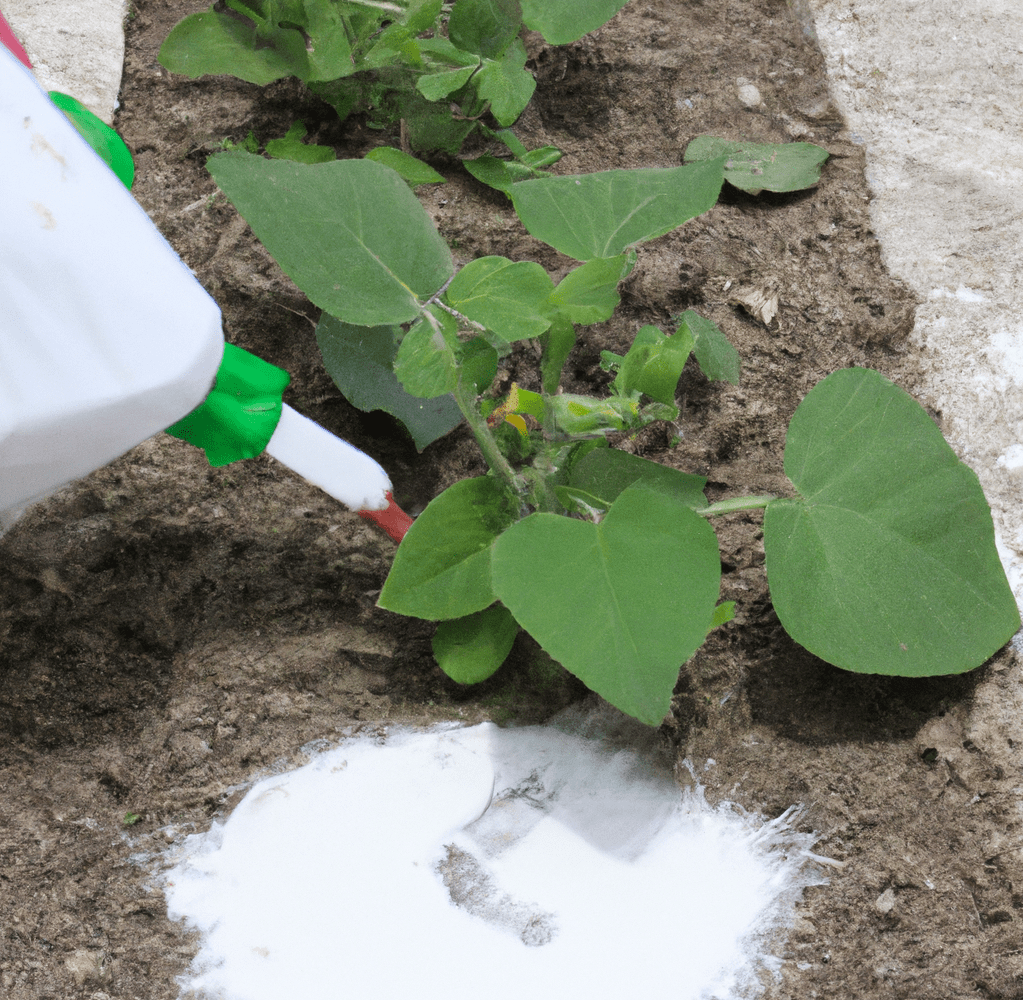
The Long-Term Damage Caused by Chemical Fertilizers on Soil Health
When you’re learning about the dangers of using chemical fertilizers and how to avoid them, you’ll know that chemical fertilizers used in excess might eventually degrade soil and worsen its health. Chemical fertilizers have the potential to decrease the number of benevolent microorganisms in the soil as well as alter the pH levels of the soil, making it more acidic. This may result in decreased crop yields, decreased soil fertility, and greater susceptibility to soil erosion. Chemical fertilizers can also drain into groundwater, contaminating it and perhaps harming the health of aquatic life such as plants and animals that depend on it for survival.
The Impact of Chemical Fertilizers on Crop Yield and Quality
Overuse of chemical fertilizers can also have detrimental effects on crop yield and quality in addition to degrading the soil. Chemical fertilizers have the potential to increase the number of nutrients in the soil, which could result in overly big and brittle crops. Crop production may drop as a result of increased susceptibility to disease and pest damage. Chemical fertilizer use can also result in lower crop quality since crops grown with too much of it may be less tasty and nutritious than crops grown with more evenly distributed nutrient inputs which is why the dangers of using chemical fertilizers and how to avoid them are vital.
Alternatives to Chemical Fertilizers
While learning about the dangers of using chemical fertilizers and how to avoid them is important, there are alternatives. Here’s a rundown of some that you can look into:
- Organic Fertilizers: Natural materials including plant material, animal manure, and minerals are used to make organic fertilizers. They do it in a way that’s safe for the environment and people’s health while yet giving plants the vital nutrients they require to develop. The organic fertilizers compost, bone meal, blood meal, and rock phosphate are a few examples.
- Composting: Composting is a sustainable method of reusing organic waste to enrich the soil. It entails converting yard trash, food leftovers, and other organic items into nutrient-rich soil that may be applied as plant fertilizer. Composting benefits the environment and cuts down on the amount of garbage dumped in landfills.
- Crop Rotation: Crop rotation is a practice that entails growing several crops in a field in a logical order. This keeps the soil fertile and prevents the spread of pests and illnesses. Farmers can maximize yields and improve crop quality by rotating crops to keep the soil healthy and fertile.
Natural fertilizers have many advantages over chemical fertilizers. They contribute to waste reduction, enhance soil health, and are safer for both human health and the environment. They do, however, also have their own unique set of difficulties. For instance, organic fertilizers may be more expensive and may not provide plants with the same instant increase in nutrients that chemical fertilizers offer. Composting might also take more time and space than other processes because of the time and space requirements.
Implementing Natural Alternatives After Learning About the Dangers of Using Chemical Fertilizers and How to Avoid Them
There are a number of actions you may do if you want to use natural fertilizers instead of chemical ones.
- Think about adding soil amendments and organic fertilizers like compost to your garden.
- Rotate the crops on your farm or garden.
- To learn more about natural alternatives and how to include them in your gardening or farming operations, think considering attending workshops or classes given by academic institutions or regional gardening organizations.
Bottom Line: The Dangers of Using Chemical Fertilizers and How to Avoid Them
Chemical fertilizers have hazardous components that can be bad for the environment and for human health. They can contaminate water sources, endanger wildlife, degrade land, and cause respiratory problems and other health issues in people. Additionally, excessive use of chemical fertilizers can cause soil degradation, which will make it more difficult for healthy crops to grow and will harm food output which is why it’s important to learn about the dangers of using chemical fertilizers and how to avoid them.
However, there are best practices you can use if chemical fertilizers are required as well as alternatives that you can explore that don’t negatively affect your plants, health, and the environment.
FAQs on The Dangers of Using Chemical Fertilizers and How to Avoid Them
Why are chemical fertilizers utilized, and what do they do?
Chemical fertilizers are man-made products designed to provide the essential nutrients required for plant growth. They are widely applied as a short-term remedy in farming and gardening to increase crop yields and ensure healthy plant growth. Chemical fertilizers are increasingly used because of their speedy results and relative price when compared to other fertilizing techniques.
What risks do utilizing chemical fertilizers present?
Chemical fertilizers have a variety of drawbacks, such as their synthetic components, which might be harmful to the soil and result in long-term degradation and a loss of fertility. Additionally, they might injure plants grown in soil, jeopardize their health, and lessen their ability to produce nutrient-dense food. Chemical fertilizers may also make the soil too poisonous, which could be absorbed by crops and eaten by people.
What are the negative impacts of utilizing chemical fertilizers on the environment?
Chemical fertilizers emit a significant amount of greenhouse gases that contribute to global warming, as well as contaminating the soil and water. Nitrogen-rich fertilizers should not be used excessively since they can produce soils that are overly rich in nutrients, damage aquatic life, and potentially harm human health if consumed.
What risks do chemical fertilizers pose to human health?
The toxicity of fertilizers and their derivatives can be damaging to both people and water sources when they are exposed to them. Excessive fertilizer use may impact aquatic life, cause nutrient leaching into water sources, and possibly be dangerous to human health if consumed. Some fertilizers include hazardous chemicals, including heavy metals and other substances that, if not adequately managed, could jeopardize human health. These substances have the potential to cause symptoms that range from skin irritability to serious medical conditions like cancer and respiratory diseases.
What effects do chemical fertilizers have on biodiversity and wildlife?
Chemical fertilizers and pesticides used in agriculture can have a negative impact on soil health and wildlife. For instance, over usage of nitrogen-based fertilizers may cause nitrogen runoff to harm aquatic environments. The use of pesticides can also have an impact on animals that are not intended targets and disrupt food networks. To reduce these negative consequences, it is essential to practice sustainable agricultural methods that protect wildlife habitats, maintain the health of the soil, and employ hazardous pesticides less frequently.


